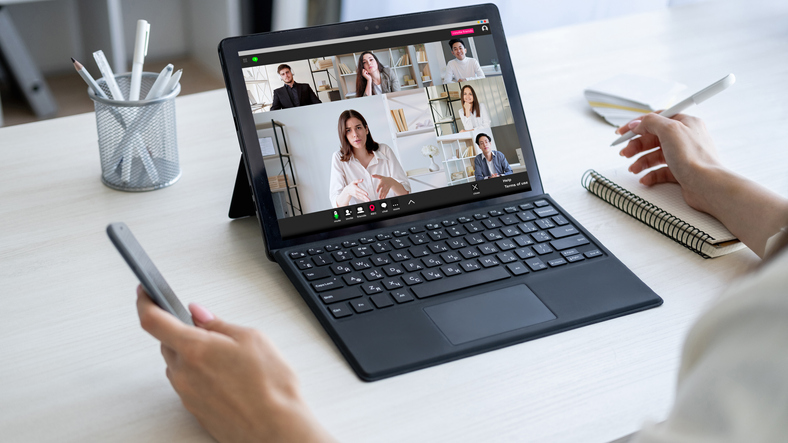
Many couples experience conflict at some point in their relationship. As a result, some turn to relationship counselling as a means to resolve their issues and come to a solution in a healthy and constructive manner. If you’re considering a career as a relationship counsellor, you’ll be helping couples to work through their problems, create a deeper understanding between one another, and improve their approach to communication.
Relationship counselling is a process that entails challenges for both the counsellor and the couple in question. While the issues of each couple will be different, there are a few general practices that you can implement throughout each session to most effectively help couples to come to a solution in their relationship.
Read on to discover some valuable techniques.
During Your Relationship Counselling Career, Keep the Session on Track
As a relationship counsellor, it’s your job to provide a space for couples to talk through their problems in a constructive manner. However, this is not always an easy task, especially as emotions can become heightened and couples can become hostile or angry as they discuss a difficult or sensitive topic (Wijkstrom, 2018). During your relationship counselling career, one of the most effective ways that you can help couples to come to a beneficial solution is by keeping the session on track (Heltler, 2017). While couples often want to be able to focus on a specific issue, heated emotions have the potential to derail the productivity of a conversation (Heltler, 2017). An effective relationship counsellor must be able to encourage a collaborative dialogue, control the level of emotional intensity, and facilitate the movement of the conversation in a helpful direction (Heltler, 2017).

You can keep a session on track by asking each individual what they would like to address at the beginning of each session (Heltler, 2017). With this information in mind, you can work with the couple to formulate some goals to direct the discussion, reassessing whether the goal was reached at the end of the session (Heltler, 2017).
Focus on Building Communication
For many couples seeking relationship counselling, developing techniques for improved communication can go a long way towards addressing problems productively. The majority of relationship issues stem from communication problems, leading to misunderstandings and emotional unrest (Dean, 2021). Upon completing relationship counselling training, you can help couples to improve their communication skills and to speak to each other with greater understanding and support (Whitborne, 2012).

In order to improve communication between a couple, you can use Imago therapy to help couples improve their understanding of one another (Dean, 2021). Imago therapy focuses on helping couples to understand that their individual methods of communicating are different, but that each individual speaks their truth based upon their own reality and perception of the situation (Dean, 2021). Imago therapy teaches couples to communicate without blame, shame or criticism, working instead to treat each other with equal respect (Dean, 2021).
Help Couples to See their Problem from a New Perspective
As a relationship counsellor, another effective technique for improving the quality of a counselling session is to help couples to see their issue or situation from a different perspective. There are a few different ways to achieve a change in perspective. Narrative therapy is one such technique, which involves separating the problem from the individual (Tasker, 2018). Narrative therapy operates by having an individual describe an issue in narrative form, allowing them to understand that the problem isn’t what defines them, but is instead something that is external and can be explored from a different angle (Tasker, 2018).
Another technique which can be used in encouraging couples to change their perspective on a relationship is Emotionally-Focused Therapy (Whitborne, 2012). Emotionally-Focused Therapy helps couples to understand their problems from a different angle by delving deeper into their emotions and exploring the root causes of their behaviour or problems (Dean, 2021). As a relationship counsellor, you can ask questions that help the couple to understand experiences that could be contributing to a problem they’re currently facing (Heltler, 2017). With this technique, couples can work to gain some insight into the core issues in their relationship, by making connections to major past experiences (Tasker, 2018). This can help couples to see their relationship in a new light and gain a greater understanding of each other’s actions, as well as their own (Tasker, 2018).
Draw Attention to the Positive
Lastly, it’s important to remember that although many negative aspects of a relationship are often discussed in relationship counselling, the positive attributes of a relationship shouldn’t be forgotten. As an effective relationship counsellor, you can point out the strengths you identify in a couple’s relationship in order to help the couple appreciate the positive aspects (Whitborne, 2012). Drawing attention to the positive creates hope for a couple (Whijkstrom, 2018) and encourages them to look past the resentment or frustration they may be feeling currently (Whitborne, 2012).
Ready to enroll in relationship counselling courses?
Become certified with a program at Rhodes Wellness College to launch your career!
Works Cited:
Dean, M. E. (2021, March 7). A Quick Guide To Couples Counseling Techniques. ReGain. https://www.regain.us/advice/counseling/a-quick-guide-to-couples-counseling-techniques/
Heltler, S. (2017, May 16). Couples Therapy: 15 Essentials That the Best Therapists Do. Psychology Today. https://www.psychologytoday.com/us/blog/resolution-not-conflict/201705/couples-therapy-15-essentials-the-best-therapists-do
Tasker, R. (2018, February 11). 9 Best Couples Counseling Techniques and Why You Should Try Them. GuideDoc. https://guidedoc.com/best-couples-counseling-techniques
Whitborne, S. K. (2012, March 20). 5 Principles of Effective Couples Therapy. Psychology Today. https://www.psychologytoday.com/ca/blog/fulfillment-any-age/201203/5-principles-effective-couples-therapy
Wijkstrom, S. (2018, May 21). Turning Anger into an Ally. TheraNest. https://theranest.com/blog/therapy-techniques-effective-couples-counseling/#:%7E:text=Therapy%20Techniques%20for%20Effective%20Couples%20Counseling%201%20Approach,.%20.%20.%204%20State%20Needs%20and%20Feelings%20Constructively.%20









